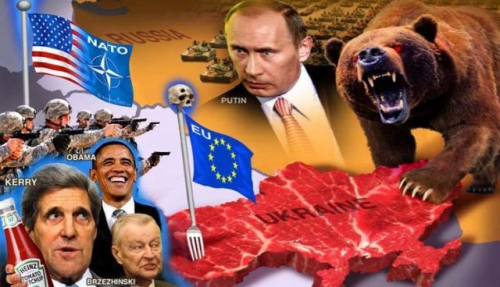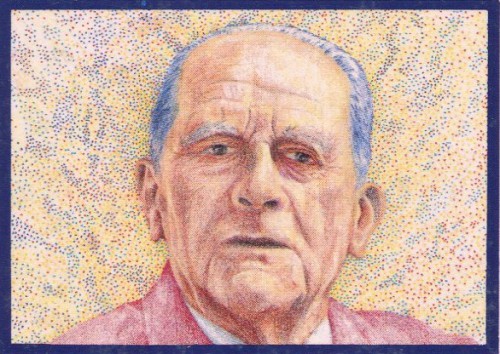Peking und Moskau stehen sich nahe, sind aber keine Verbündeten
von Fu Ying, Präsidentin der Aussenpolitischen Kommission des Nationalen Volkskongresses der Volksrepublik China*
Ex: http://www.zeit-fragen.ch
Zu einer Zeit, in der sich die russischen Beziehungen zu den Vereinigten Staaten und Westeuropa abkühlen, sind die verhältnismässig herzlichen Verbindungen zwischen China und Russland auf erneutes Interesse gestossen. Wissenschaftler und Journalisten im Westen finden sich in einer Debatte über das Wesen der chinesisch-russischen Partnerschaft wieder und fragen sich, ob sie sich zu einem Bündnis weiterentwickle.
Seit dem Ende des Kalten Krieges haben in der Tendenz zwei Hauptauffassungen die westlichen Beurteilungen der chinesisch-russischen Beziehung und die Prognosen über ihre Zukunft bestimmt. Die erste Auffassung vertritt, dass die Verbindung zwischen Peking und Moskau verletzlich, unsicher und von Ungewissheiten gekennzeichnet sei – eine «Vernunftehe», um den Ausdruck zu verwenden, den viele Vertreter dieser Meinung bevorzugen, die es als unwahrscheinlich ansehen, dass die zwei Länder sich viel näher kommen, und es für gut möglich halten, dass sie beginnen, sich auseinanderzuentwickeln. Die andere Auffassung postuliert, dass strategische und sogar ideologische Faktoren die Basis der chinesisch-russischen Verbindungen bilden, und prognostiziert, dass die zwei Länder – die beide die Vereinigten Staaten als mögliches Hindernis für ihre Ziele sähen – schliesslich eine gegen die USA und gegen den Westen gerichtete Allianz bilden werden.
Keine dieser Auffassungen erfasst die wahre Natur der Beziehung richtig. Die chinesisch-russische Beziehung ist eine stabile strategische Partnerschaft und keinesfalls eine Vernunftehe: Sie ist komplex, solide und tief verwurzelt. Veränderungen in den internationalen Beziehungen seit dem Ende des Kalten Krieges haben die zwei Länder nur näher zusammengeführt. Einige westliche Analysten und Amtsträger haben spekuliert (und vielleicht sogar gehofft), dass die laufenden Konflikte in Syrien und in der Ukraine, in die Russland stark involviert worden ist, zu Spannungen zwischen Peking und Moskau führen würden – oder gar zu einem Bruch. Aber das ist nicht geschehen.
Trotzdem hat China kein Interesse an einer förmlichen Allianz mit Russland, auch nicht an der Bildung eines anti-US oder anti-westlichen Blockes irgendeiner Art. Vielmehr hofft Peking, dass China und Russland ihre Beziehung in einer Art und Weise aufrechterhalten können, die den beiden grossen Nachbarn ein sicheres Umfeld bietet, um ihre Entwicklungsziele zu erreichen und einander durch eine gegenseitig nutzbringende Kooperation zu unterstützen, und damit ein Modell dafür bieten, wie bedeutende Länder ihre Differenzen bewältigen und so zusammenarbeiten, dass damit das internationale System gestärkt wird.
Verbindungen, die zusammenhalten
China schloss zwischen dem Ende des 19. und der Mitte des 20. Jahrhunderts bei verschiedenen Gelegenheiten ein Bündnis mit dem russischen Imperium und seinem Nachfolger, der Sowjetunion. Aber jedes Mal erwies sich die Abmachung als kurzlebig, da sich jede in Zweckmässigkeit zwischen zwei Ländern von ungleicher Stärke erschöpfte. In den darauffolgenden Jahrzehnten wurstelten sich die beiden mächtigen kommunistisch-geführten Länder durch; gelegentlich arbeiteten sie zusammen, oft aber war das Verhältnis von Rivalität und Misstrauen beherrscht. 1989, in den Jahren schwindender sowjetischer Herrschaft, stellten sie schliesslich wieder Normalität in ihren Beziehungen her. Sie erklärten gemeinsam, dass sie bilaterale Beziehungen entwickeln wollten, die auf der Grundlage von «gegenseitiger Achtung der Souveränität und territorialen Integrität, gegenseitiger Nicht-Aggression, Nicht-Einmischung in die gegenseitigen inneren Angelegenheiten, Gleichheit und beiderseitigem Nutzen und friedlicher Koexistenz» stehen sollten. Zwei Jahre später zerfiel die Sowjetunion, aber die chinesisch-russischen Beziehungen fuhren fort mit dem Prinzip «keine Allianz, kein Konflikt und kein Abzielen auf irgendein drittes Land».
Bald darauf machte sich die neugeborene Russische Föderation den sogenannten Ansatz der Transatlantiker zu eigen. Um das Vertrauen und Hilfe des Westens zu gewinnen, befolgte Russland nicht nur die westlichen Rezepte für wirtschaftliche Reformen, sondern machte auch Konzessionen bei wesentlichen Sicherheitsfragen, wozu auch die Reduktion seines Bestandes an strategischen Nuklearwaffen gehörte. Die Dinge fielen nicht so aus, wie die Russen gehofft hatten, da die Wirtschaft des Landes zusammenbrach und sein regionaler Einfluss schwand. Im Jahr 1992 – enttäuscht darüber, was sie als nicht erfüllte Versprechen amerikanischer und europäischer Unterstützung sahen, und irritiert ob des Redens über die Nato-Ost-Erweiterung – begannen die Russen, Asien vermehrt Aufmerksamkeit zu schenken. In jenem Jahr gaben China und Russland bekannt, dass jeder den andern als «befreundetes Land» betrachten würde, und veröffentlichten eine gemeinsame politische Erklärung, die festlegte, dass «die Freiheit der Völker, ihren eigenen Entwicklungsweg zu wählen, respektiert werden soll, dabei sollten Differenzen in den sozialen Systemen und Ideologien den normalen Fortschritt der Beziehungen nicht beeinträchtigen».
Seither haben sich die chinesisch-russischen Beziehungen sukzessive verbessert und vertieft. Während der etwa 20 letzten Jahre haben sich der bilaterale Handel und Investitionen in grossem Massstab ausgeweitet. 2011 wurde China der grösste Handelspartner Russlands. Allein im Jahr 2014 nahmen die Investitionen Chinas in Russland um 80 Prozent zu – und der Trend zu mehr Investitionen bleibt stark. Um eine Vorstellung vom Wachstum der wirtschaftlichen Beziehungen zu bekommen, muss man bedenken, dass sich der jährliche bilaterale Handel zwischen China und Russland in den frühen 1990er Jahren auf etwa 5 Milliarden Dollar belief; im Jahr 2014 betrug er annähernd 100 Milliarden Dollar. In jenem Jahr unterzeichneten Peking und Moskau ein wegweisendes Abkommen zum Bau einer Pipeline, die ab dem Jahr 2018 jedes Jahr 38 Milliarden Kubikmeter russisches Erdgas nach China bringen wird. Die beiden Länder planen auch bedeutende Übereinkommen bezüglich der Erzeugung von Atomkraft, der Luft- und Raumfahrtproduktion, Hochgeschwindigkeits-Eisenbahnverbindungen und Infrastrukturentwicklung. Darüber hinaus arbeiten sie zusammen an neuen multinationalen Finanzinstitutionen wie der Asiatischen Infrastruktur-Investment Bank, der Neuen Entwicklungsbank der BRICS-Staaten und dem BRICS-Devisenreservepool.
Mittlerweile haben sich auch die Sicherheitsbeziehungen verbessert. China ist zu einem der grössten Importeure russischer Waffen geworden, und die beiden Länder sind im Gespräch über eine Reihe gemeinsamer Forschungs- und Entwicklungsprojekte im Rüstungsbereich. Zur umfangreichen chinesisch-russischen Verteidigungskooperation gehören Konsultationen zwischen hochrangigen Militärpersonen und gemeinsame Schulungen und Übungen, darunter mehr als ein Dutzend gemeinsamer Übungen zur Bekämpfung des Terrorismus im Laufe der etwa 10 letzten Jahre, die entweder bilateral oder unter dem Patronat der Shanghai Cooperation Organization durchgeführt wurden. In den vergangenen zwanzig Jahren haben Tausende chinesischer Militärangehöriger in Russland studiert, und viele russische Militärbeamte haben befristete Schulungen an der Nationalen Verteidigungsuniversität von China erhalten.
So wie die wirtschaftlichen und militärischen Verbindungen sind auch die politischen stärker geworden. Im Jahr 2008 waren China und Russland in der Lage, Gebietsstreitigkeiten friedlich beizulegen, welche die Beziehungen über Jahrzehnte gestört hatten, indem sie ihre über 2600 Meilen lange Grenze in aller Form zogen und damit die bei weitem grösste Quelle von Spannungen beseitigten – eine seltene Leistung zweier grosser Nachbarn. In den letzten Jahren haben die beiden Länder regelmässige jährliche Treffen zwischen ihren Staatsoberhäuptern, ihren Premierministern, ihren höchsten Gesetzgebern und Aussenministern abgehalten. Seit 2013, als Xi Jingping Präsident von China wurde, hat er Russland fünf Besuche abgestattet, und der russische Präsident Wladimir Putin ist im gleichen Zeitraum dreimal nach China gereist. Alles in allem haben Xi und Putin sich zwölfmal getroffen, womit Putin jenes ausländische Staatsoberhaupt wurde, das Xi seit der Übernahme der Präsidentschaft am häufigsten getroffen hat.
Meinungsverschiedenheiten handhaben
Trotz all dieser Fortschritte existieren noch immer Differenzen zwischen den beiden Nachbarn, und sie legen nicht immer den gleichen Schwerpunkt, wenn es um Fragen der Aussenpolitik geht. Russland ist traditionellerweise nach Europa orientiert, während China mehr mit Asien beschäftigt ist. Auch der diplomatische Stil der beiden Länder ist unterschiedlich. Russland ist erfahrener auf dem globalen Schauplatz und bevorzugt tendenziell starke, aktive und oft überraschende diplomatische Manöver. Chinesische Diplomatie ist dagegen reaktiver und vorsichtiger.
Der Aufstieg Chinas hat bei einigen in Russland Unbehagen ausgelöst, wo gewisse Leute Schwierigkeiten hatten, sich auf die relative Machtverschiebung zwischen China und Russland einzustellen. In Russland ist noch immer die Rede von «der chinesischen Bedrohung», ein Ausdruck, der aus vergangenen Zeiten übriggeblieben ist. Eine Umfrage, die 2008 von Russlands Stiftung für öffentliche Meinung durchgeführt wurde, zeigte, dass rund 60 Prozent der Russen sich Sorgen machten, dass die chinesische Migration in die fernöstlichen Grenzregionen die territoriale Integrität Russlands gefährde, 41 Prozent glaubten, dass ein stärkeres China den russischen Interessen schaden würde. Und als Chinas Bemühen um neue Investitions- und Handelsmöglichkeiten im Ausland zu verstärkter chinesischer Zusammenarbeit mit ehemaligen Sowjetstaaten führte, sorgten sich Russen darüber, dass China in Wettstreit um Einfluss in ihrer Nachbarschaft trete. Zum Teil deswegen zögerte Moskau anfänglich, die Initiative Pekings für einen Wirtschaftsgürtel entlang der Seidenstrasse zu unterstützen, bevor es sich diese schliesslich 2014 zu eigen machte. Indes hegen einige Chinesen weiterhin historischen Groll bezüglich Russland. Trotz der Lösung der Grenzangelegenheiten machen chinesische Kommentatoren manchmal kritische Anspielungen auf die nahezu 600 000 Quadratmeilen chinesischen Territoriums, welche das zaristische Russland Ende des neunzehnten Jahrhunderts annektiert hatte.
Allerdings vermögen diese Differenzen Spekulationen im Westen kaum zu unterstützen, wonach Peking und Moskau dabei seien, auseinanderzudriften. Diese Theorie ist in den letzten zwei Jahren gelegentlich in westlichen Kommentaren aufgetaucht, da sich Russlands Beziehungen zu den Vereinigten Staaten und zur EU auf Grund der Krisen in Syrien und der Ukraine verschlechtert haben. Trotz gewisser Differenzen haben China und Russland jedoch gemeinsam den Wunsch, ihre bilateralen Beziehungen entschieden zu entwickeln, und verstehen, dass sie einander die Hand reichen müssen, um nationale Sicherheit und Entwicklung zu erreichen. Ihre Zusammenarbeit trägt zum Gleichgewicht im internationalen System bei und kann die Lösung einiger internationaler Probleme erleichtern. Manchmal sind sie sich einig, manchmal nicht. Aber sie sind imstande, ihre Meinungsverschiedenheiten anzuerkennen und zu bewältigen, und gleichzeitig die Bereiche, in denen Konsens besteht, weiter auszubauen. Wie der chinesische Aussenminister anmerkte, bietet die chinesisch-russische Beziehung einen neuen Ansatz für die Gestaltung aussenpolitischer Beziehungen und verkörpert ein mögliches Modell, dem andere Staaten folgen könnten.
Die Krisen in Syrien und der Ukraine veranschaulichen die Formen, in denen China und Russland ihre Partnerschaft erfolgreich handhabten. Viele in den Vereinigten Staaten empfinden Chinas Haltung als unklar oder argwöhnen, dass China für Russland Partei ergriffen habe. Tatsache ist, dass der Sprecher des chinesischen Aussenministeriums nach der russischen Annexion der Krim im Jahre 2014 unmissverständlich erklärte, dass die Unabhängigkeit, die Souveränität und die territoriale Integrität der Ukraine respektiert werden sollte. China betonte, alle am Konflikt in der Ukraine beteiligten Parteien sollten ihre Differenzen durch Dialog lösen, Mechanismen der Absprache aufbauen, Aktivitäten unterlassen, welche die Situation verschlimmern könnten, und der Ukraine darin beistehen, ihre wirtschaftliche und finanzielle Stabilität aufrechtzuerhalten. China hat für niemanden Partei ergriffen: Fairness und Objektivität dienen Peking als leitende Prinzipien, wenn es internationale Angelegenheiten anspricht.
Aber chinesische Diplomaten und Führungskräfte bedenken auch, was zu der Krise geführt hat, wozu auch eine Reihe westlich unterstützter «Farbrevolutionen» in post-sowjetischen Staaten gehören und der Druck auf Russland, der aus der Nato-Ost-Erweiterung resultierte. Auch beachten sollte man, dass es zwischen Russland und den ehemaligen Sowjetrepubliken lange Zeit komplizierte geschichtliche, ethnische, religiöse und territoriale Fragen gab. Die Ukraine-Krise ist durch all diese Faktoren bedingt. Wie Xi formuliert, ist die Krise «nicht aus dem Nichts gekommen».
Was Syrien betrifft, ist die Sicht in Peking die, dass Russland seine militärische Intervention auf Ersuchen der syrischen Regierung begann, um terroristische und extremistische Kräfte zu bekämpfen. Obwohl Washington den syrischen Präsidenten Bashar al-Assad zum Rücktritt aufforderte, teilt es Russlands Ziel, es mit dem Islamischen Staat (auch Isis genannt) aufzunehmen. Die Vereinigten Staaten haben die russische Intervention also einerseits kritisiert, auf der anderen Seite haben sie aber ihre Bereitschaft ausgedrückt, mit Russland in der Bekämpfung des Terrorismus zusammenzuarbeiten. Der russische Schritt war nicht genau das, was die Vereinigten Staaten sich wünschten, aber er war auch nicht nur schlecht für die Interessen der USA. Aus Chinas Perspektive haben Russland und die Vereinigten Staaten ein gemeinsames Interesse daran, sich den brutalen Terroristen des Isis entgegenzustellen. In China hofft man, dass die Gespräche zwischen Russland, den Vereinigten Staaten, Iran und einer Reihe weiterer regionaler Mächte bei der Lösung des Konfliktes Fortschritte machen.
Aber es ist schwierig zu wissen, wie weit die US-russische Kooperation in Syrien gehen kann, ohne ein gemeinsames Verständnis darüber, was zu Frieden und Ordnung führen wird. Und viele in China finden es verblüffend, dass die Auffassungen in den USA und Russland noch immer so stark vom Kalten Krieg beeinflusst sind.
US-Politiker und Kommentatoren neigen dazu, über Russland so zu sprechen, als sei es noch immer der gescheiterte Rivale aus dem Kalten Krieg. Derweil kritisieren russische Beamte und Beobachter Washingtons Verhalten häufig als arrogant und imperial. Einige Analytiker auf beiden Seiten haben vorgebracht, die Distanzierung zwischen Moskau und Washington bezüglich Syrien und der Ukraine könnte zu einem neuen Kalten Krieg führen. Aber aus Chinas Perspektive erscheinen die gegenwärtigen Konfrontationen eher wie eine verlängerte Beendigung des ursprünglichen Kalten Krieges. Es bleibt unklar, ob Moskau und Washington diese Gelegenheit ergreifen, um alte Feindschaften schliesslich beizulegen.
Das Nullsummenspiel überwinden
In Anbetracht der Art und Weise, wie die Beziehungen zwischen China, Russland und den Vereinigten Staaten ineinandergreifen, wäre keine Analyse der chinesisch-russischen Beziehungen vollständig, ohne in Betracht zu ziehen, wie die Dinge zwischen China und den Vereinigten Staaten stehen. Verglichen mit der chinesisch-russischen Beziehung ist diejenige zwischen Peking und Washington breiter und komplizierter. Zusammengenommen stehen China und die Vereinigten Staaten für ein Drittel des weltweiten Bruttoinlandprodukts. Im Jahr 2014 erreichte der US-chinesische Handel nahezu 600 Milliarden Dollar, und die kumulierten gegenseitigen Investitionen überstiegen 120 Milliarden Dollar. Vor 37 Jahren, als die Volksrepublik China diplomatische Beziehungen zu den Vereinigten Staaten aufnahm, rechnete niemand damit, dass eine derart starke Partnerschaft entstehen könnte.
Aber die strukturellen Schwierigkeiten in der Beziehung lassen sich nicht bestreiten. Es bestehen weiterhin wesentliche Unterschiede zwischen den politischen Werten Chinas und der USA und zwischen den Regierungssystemen der beiden Länder. Und viele Amerikaner betrachten die wachsende wirtschaftliche Stärke Chinas und seinen entspechend grösseren Einfluss als potentielle Bedrohung von Washingtons globaler Führungsposition. China hat sich schnell zur zweitgrössten Wirtschaft der Welt entwickelt. Als im Jahre 2003 US-Truppen in den Irak einmarschierten, betrug das BIP Chinas ungefähr einen Achtel desjenigen der Vereinigten Staaten. Als die Amerikaner acht Jahre später aus dem Irak abzogen, war das BIP Chinas auf die Hälfte desjenigen der Vereinigten Staaten angewachsen. Gemäss zahlreichen Schätzungen wird sich Chinas BIP demjenigen der Vereinigten Staaten bis zum Jahr 2020 annähern. Diese Veränderungen haben in Washington Befürchtungen ausgelöst, China und die Vereinigten Staaten seien auf Konfrontationskurs. Streitigkeiten über Chinas Bautätigkeiten auf den Spratly-Inseln im Südchinesischen Meer haben eine hitzige Debatte darüber entfacht, wie die Vereinigten Staaten auf das reagieren sollten, was einige amerikanische Wissenschaftler und Kommentatoren als Expansionismus ansehen. Peking indes betrachtet die Präsenz von Schiffen des US-Militärs nahe des chinesischen Territoriums im Südchinesischen Meer als Akt der Provokation. Einige argumentieren, dass sich die US-Politik gegenüber China vom konstruktiven Engagement zur Politik der Eindämmung verschieben könnte.
Diese Debatten bestimmten den Hintergrund für Xis Besuch in Washington vom vergangenen September. In Ausführungen während des Besuches sprach Xi die Vorstellung, Chinas Entwicklung stelle eine Anfechtung der globalen Führungsrolle der Vereinigten Staaten dar, direkt an. «Der Weg, den China verfolgt, ist einer der friedlichen Entwicklung, und China stellte keine Bedrohung für andere Länder dar», sagte Xi. Später ergänzte er: «Die Menschen sollten die alten Konzepte des ‹du verlierst, ich gewinne› oder des Nullsummenspiels aufgeben und ein neues Konzept friedlicher Entwicklung und einer Win-win-Kooperation schaffen. Wenn sich China gut entwickelt, wird das der ganzen Welt zugute kommen und den Vereinigten Staaten von Nutzen sein. Wenn die Vereinigten Staaten sich gut entwickeln, wird das ebenfalls der Welt und China zugute kommen.»
Führende chinesische Politiker schreiben einen Grossteil des schnellen Aufstiegs des Landes Chinas erfolgreicher Integration in die Weltwirtschaft zu. Sie sehen China als Nutzniesser der internationalen Ordnung, deren Kern die Uno bildet, und als entschiedenen Verfechter der Prinzipien der souveränen Gleichheit und der Nichtintervention in die inneren Angelegenheiten der Staaten, wie sie in der Uno-Charta verankert sind. China rechnet damit, dass es noch für lange Zeit seine eigene wirtschaftliche und soziale Entwicklung in den Mittelpunkt wird stellen müssen, und misst daher der Aufrechterhaltung eines stabilen und friedlichen äusseren Umfeldes einen hohen Stellenwert bei. Obwohl China entschlossen ist, seine eigenen Interessen zu schützen, und auf Provokationen, Übergriffe auf seine territoriale Souveränität oder Bedrohungen seiner Rechte und Interessen entschieden reagieren würde, ist China der Gewährleistung der internationalen Ordnung und der regionalen asiatisch-pazifischen Ordnung verpflichtet, genauso wie einer weiteren Integration in die globalisierte Welt.
Die Verbesserung der US-chinesischen Beziehungen stellt einen wichtigen Teil der diplomatischen Bemühungen Chinas dar. Im letzten September fand der erste Staatsbesuch Xis in Washington statt, aber er und Präsident Obama hatten sich vorher schon fünfmal seit 2013 getroffen und bei drei Anlässen am Telefon miteinander gesprochen. Im Juni 2013, als sich die beiden Staatschefs am Sunnylands Gipfel in Kalifornien trafen, unterhielten sie sich während mehr als sieben Stunden. Nach dem Treffen kündigte Xi an, dass China und die Vereinigten Staaten ein «neues Modell von Beziehung grösserer Staaten» verfolgen würden, die er als Beziehung definierte, die auf der Vermeidung von Konflikt und Konfrontation [nonconflict, nonconfrontation], auf gegenseitigem Respekt und einer Kooperation zu beiderseitigem Nutzen [win-win-cooperation] basiert. Die beiden Staatschefs haben ihre Gespräche zu dem Thema fortgesetzt: Im November 2014 in Peking führten sie den «Yintai Dialog», der fast fünf Stunden dauerte. Und während Xis Staatsbesuch verbrachten er und Obama rund neun Stunden damit, sich zu unterhalten und gemeinsam Anlässe zu besuchen. Diese langen Treffen zwischen den beiden Staatsführern haben ihnen geholfen, Verständnis aufzubauen und die Konfrontation abzuwenden, die einige US-Analysten für unvermeidlich halten.
Insbesondere der Staatsbesuch war sehr produktiv. Die beiden Seiten erzielten für eine breite Palette von Angelegenheiten eine Übereinkunft, unter anderem bezüglich Koordinierung der makroökonomischen Politik, zum Klimawandel, zum Thema Gesundheit weltweit [global health], zur Terrorismusbekämpfung und Nichtverbreitung von Atomwaffen. Xi und Obama sprachen auch offen über Fragen der Cybersicherheit, die einen ernsthaften Streitpunkt zwischen Peking und Washington dargestellt haben; die beiden Staatschefs stellten die Absichten ihrer Länder klar, kamen überein, zu diesem Thema einen hochrangigen gemeinsamen Dialog aufzubauen, und verpflichteten sich, zusammenzuarbeiten, um einen internationalen Verhaltenskodex für Cybersicherheit zu schaffen. Das ist eine deutliche Demonstration dafür, dass die beiden Länder in wesentlichen Fragen weltweite Kooperation fördern können.
Natürlich ist es möglich, dass Peking und Washington weiterhin Meinungsverschiedenheiten haben, was das Südchinesische Meer, Taiwan, Menschenrechte, Handelspolitik und weitere Fragen anbelangt. Die Absichten der US-Militärbündnisse im asiatisch-pazifischen Raum bleiben eine spezielle Quelle der Sorge für China, besonders seit Washington 2011 seinen Schwenk nach Asien ankündigte. Einige US-Verbündete in der Region haben Ansprüche auf Chinas Hoheitsgebiet erhoben und gegen Chinas Rechte zur See verstossen, in der Hoffnung, durch einen Schmusekurs mit Washington die Vereinigten Staaten in ihre Auseinandersetzungen mit Peking verwickeln zu können. Das ist ein gefährlicher Weg und erinnert an die «Block-Politik» des Kalten Krieges.
Einige Wissenschaftler in China und andernorts haben vorgeschlagen, falls die Vereinigten Staaten darauf bestehen sollten, der Region eine Block-Politik aufzuzwingen, sollten China und Russland in Betracht ziehen, darauf mit der Bildung eines eigenen Blockes zu reagieren. Aber die chinesische Führung billigt solche Argumente nicht. China verfolgt weder Blöcke oder Allianzen, noch passen solche Argumente besonders gut in die politische Kultur Chinas. Russland beabsichtigt auch nicht, einen solchen Block zu bilden. China und Russland sollten sich an das Prinzip der Partnerschaft halten und eben nicht eine Allianz bilden. Was China und die Vereinigten Staaten anbelangt, sollten sie damit fortfahren, ein neues Modell der Beziehungen grösserer Länder zu verfolgen, und dem Dialog, der Kooperation und der Regelung von Differenzen den Vorrang gewähren.
Jede Geschichte hat drei Seiten
Die Beziehungen zwischen China, Russland und den Vereinigten Staaten gleichen gegenwärtig einem ungleichseitigen Dreieck, in dem der grösste Abstand zwischen den drei Punkten zwischen Moskau und Washington liegt. Innerhalb dieses Dreieckes sind die chinesisch-russischen Beziehungen die positivsten und stabilsten. Die amerikanisch-chinesische Beziehung hat häufige Höhen und Tiefen, und die amerikanisch-russischen Beziehungen sind sehr angespannt geworden, vor allem weil Russland nun mit erheblichen US-Sanktionen kämpfen muss. Indes lehnen sowohl Peking als auch Moskau Washingtons Einsatz von Gewalt und das Auferlegen von Sanktionen gegen andere Länder ab und wenden sich gegen die doppelten Standards, welche die Vereinigten Staaten bei ihrer Aussenpolitik anwenden.
Die Vereinigten Staaten und ihre Verbündeten mögen engere Verbindungen zwischen China und Russland als Beweis für den Prototyp einer Allianz sehen, die dahin tendiert, die US-geführte Weltordnung zu zerschlagen oder herauszufordern. Aber aus chinesischer Sicht sollte die dreiseitige Beziehung nicht als Spiel betrachtet werden, in dem sich zwei Spieler gegen den dritten zusammenschliessen. Die gesunde Entwicklung der chinesisch-russischen Beziehungen ist nicht dafür bestimmt, die Vereinigten Staaten zu schädigen, aber Washington sollte sie auch nicht zu beeinflussen suchen. Genauso wird Chinas Zusammenarbeit mit den Vereinigten Staaten nicht von Russland beeinträchtigt, auch nicht durch Spannungen zwischen Moskau und Washington. China sollte weder eine Allianz auf der Grundlage von Block-Politik bilden, noch zulassen, dass es selber von andern Ländern als Verbündeter rekrutiert wird.
Die derzeitige internationale Ordnung ist der Eckpfeiler der globalen Stabilität – sie ist aber nicht perfekt. Im Jahre 2005 gaben China und Russland eine gemeinsame Erklärung über «die internationale Ordnung im 21. Jahrhundert» heraus, in der sie forderten, dass das internationale System gerechter werde und seine Legitimierung aus den Prinzipien und Normen des Völkerrechtes ziehe. Die Erklärung machte klar, dass Peking und Moskau die Entwicklung ihrer Beziehungen – von Misstrauen und Konkurrenz zu Partnerschaft und Kooperation – als Modell dafür sehen, wie Länder ihre Differenzen regeln und in Bereichen, in denen sie übereinstimmen, zusammenarbeiten können, so dass dies die Weltordnung unterstützt und die Möglichkeit verringert, dass die Welt in Grossmacht-Konflikte und Krieg hinuntersinkt. •
* Fu Ying ist seit 2013 Präsidentin der Aussenpolitischen Kommission des Nationalen Volkskongresses der Volksrepublik China. Geboren wurde sie 1953 in der autonomen Republik Innere Mongolei. Sie ist verheiratet und hat eine Tochter. Studiert hat sie an der Beijing Foreign Studies University; sie war Botschaftsattaché in Bukarest/Rumänien, Stellvertretende Leiterin des Departementes für Übersetzung/Dolmetscher im Aussenministerium, Doktorandin an der Universität Kent, Mitarbeiterin bei der Übergangsverwaltung der Vereinten Nationen in Kambodscha, Beraterin im Aussenministerium, Abteilung Asien, Beraterin an der chinesischen Botschaft in Jakarta/Indonesion, Botschafterin in Manila/Philippinen, Direktorin der Abteilung Asien im Aussenministerium, Botschafterin in Canberra/Australien, Botschafterin in London/Grossbritannien und von 2010 bis 2013 Vize-Aussenministerin.
Quelle: Foreign Affairs, January/February 2016
(Übersetzung Zeit-Fragen)
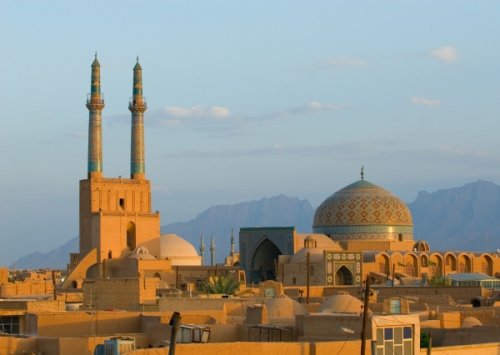



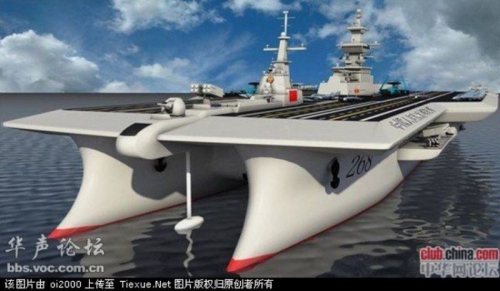
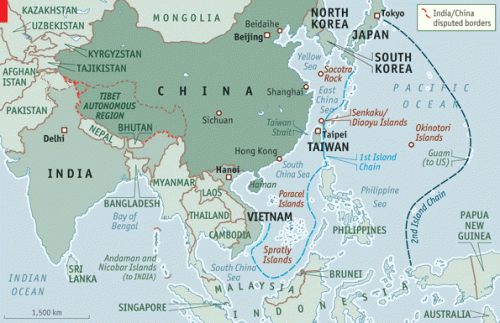

 del.icio.us
del.icio.us
 Digg
Digg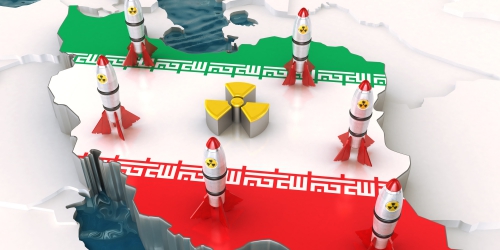
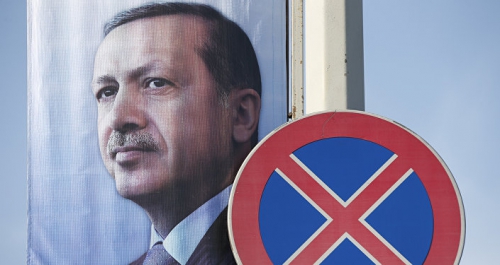

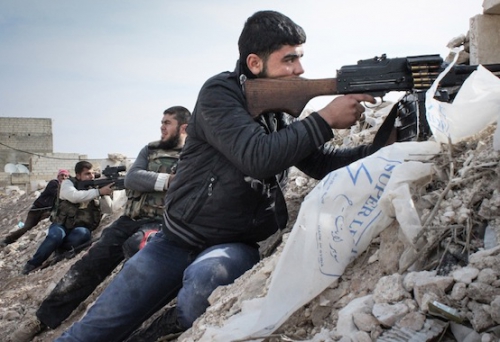
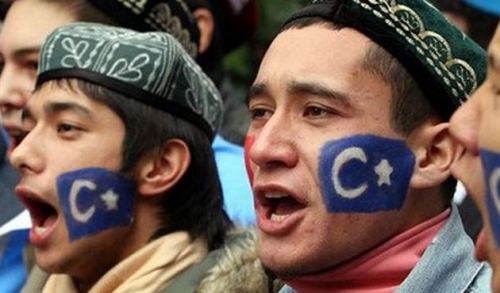
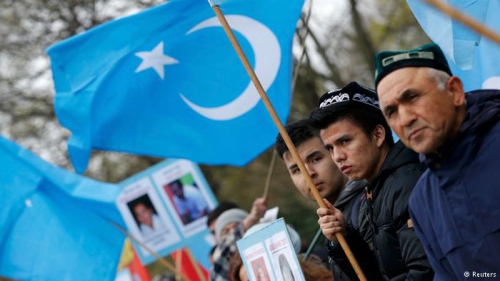
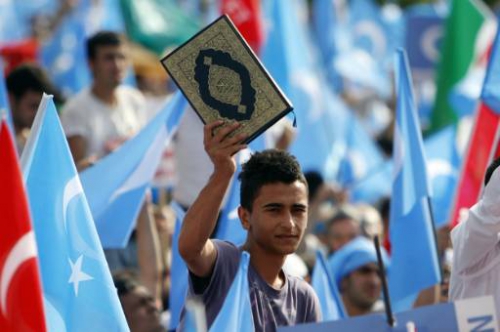


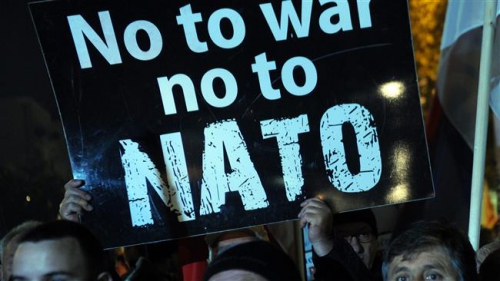
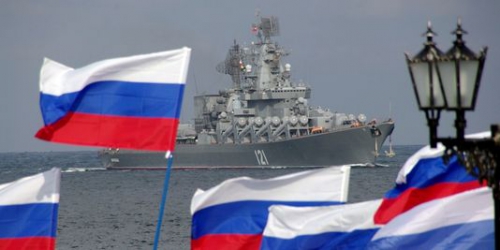
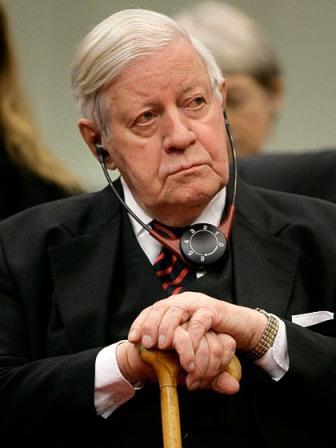
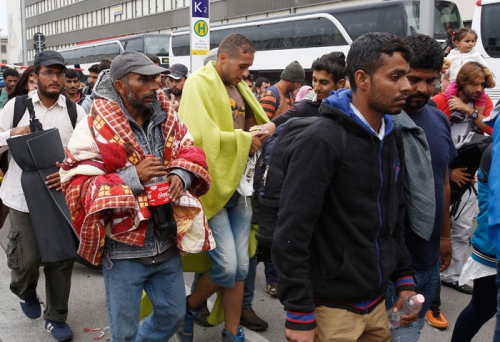
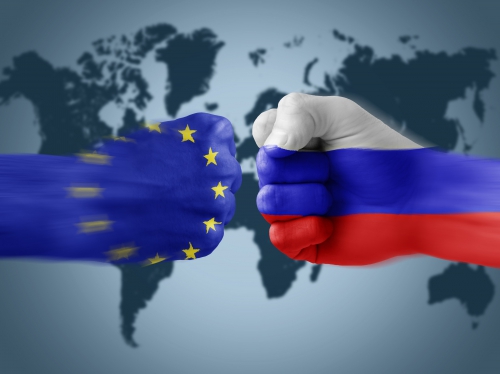
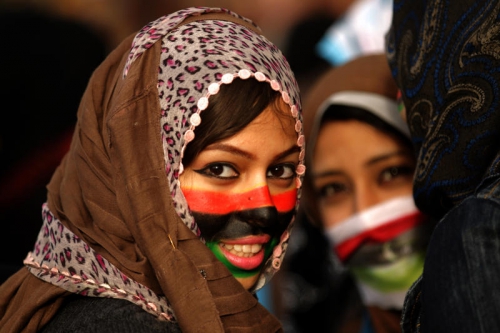

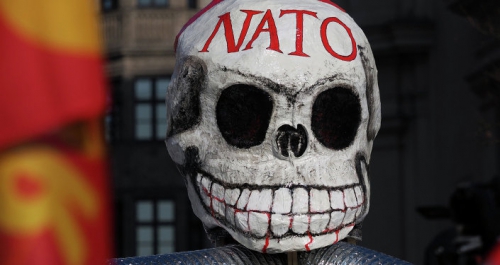
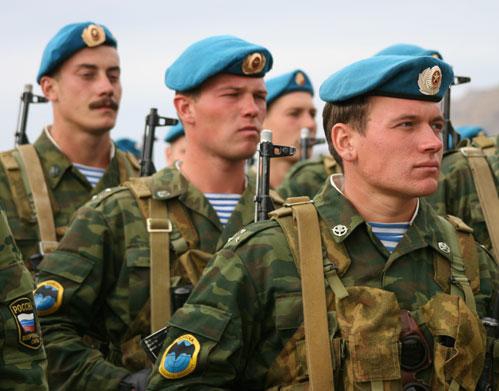
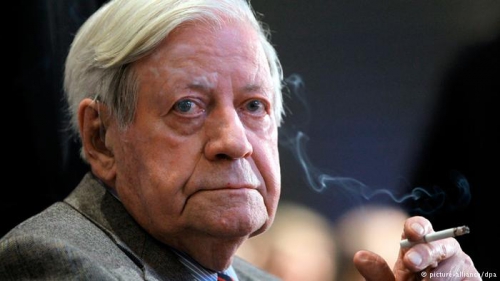
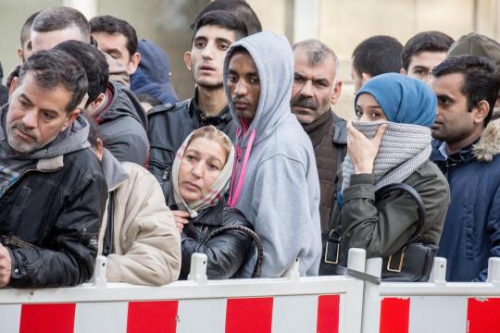
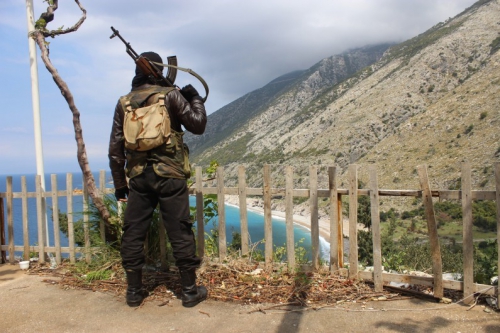
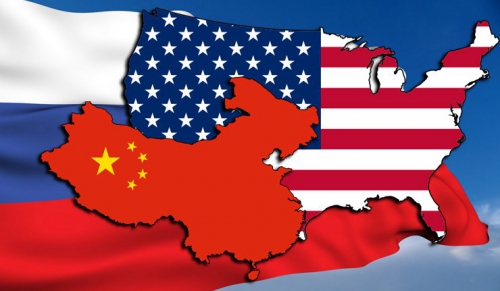
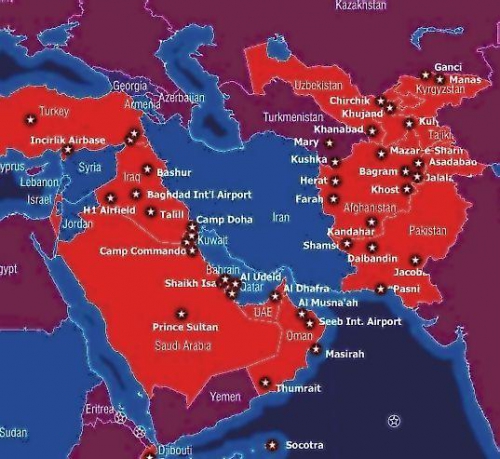
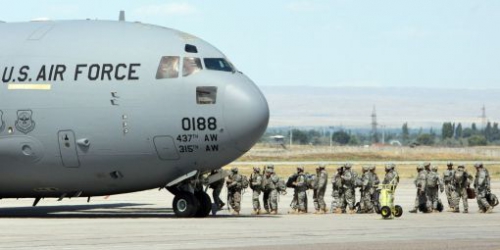 Low-Balling
Low-Balling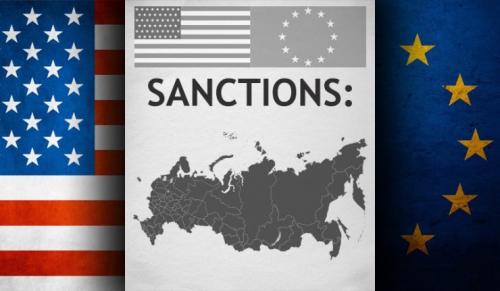
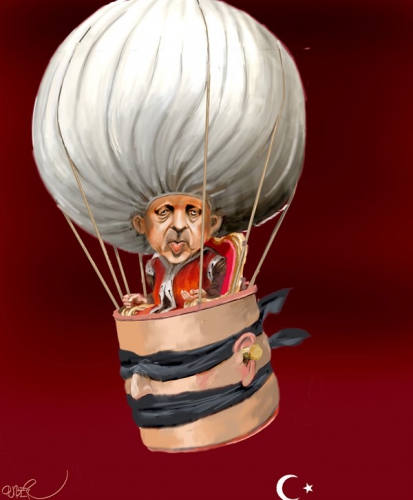
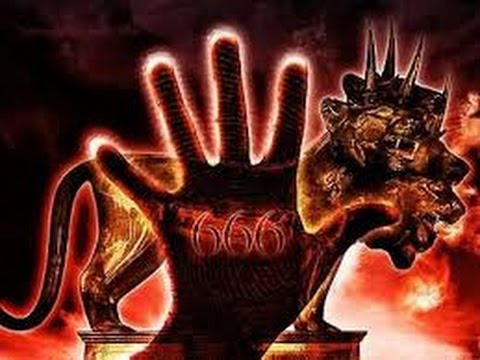
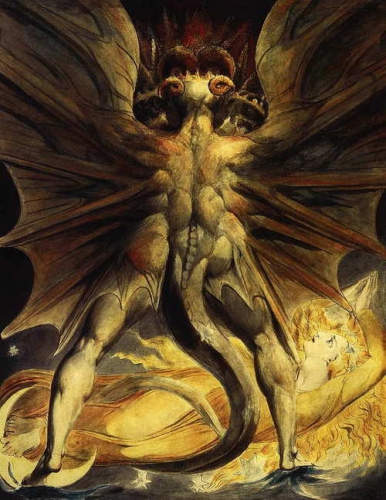
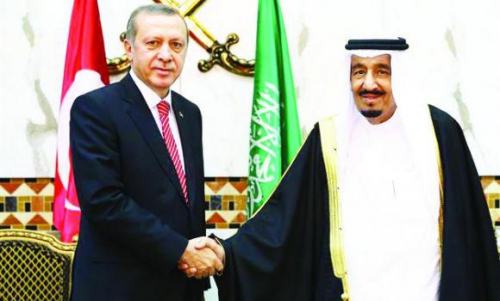
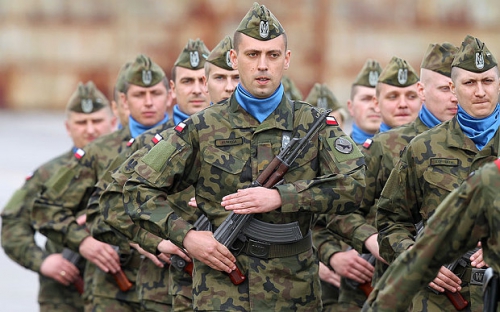
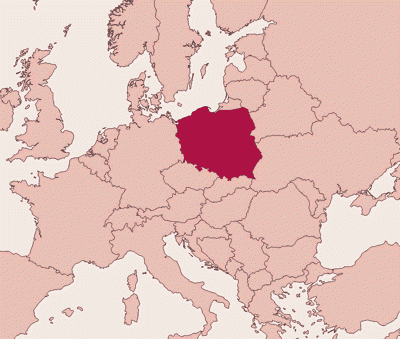 Mentionnant cette affaire
Mentionnant cette affaire
 Le PiS et Kaczynski restent antirusses, sans le moindre doute, mais dans un temps où la question de l’antagonisme avec la Russie est en train de perdre en Europe même de son importance politique immédiate, notamment en Europe de l’Est, et alors que la Russie s’est placée dans une position très favorable du point de vue de la communication avec son intervention antiterroriste en Syrie ; par contre, la querelle européenne intervient quotidiennement dans la vie de tous les États-membres, et par conséquent dans celle de la Pologne et pas du tout à l’avantage de l’UE. La question de la mise en lumière complète des circonstances de l’accident de l’avion transportant Lech Kaczynski et sa suite continue à être une hypothèque considérable dans le chef du PiS et du Premier ministre polonais par rapport aux relations avec la Russie. Qu'importe puisque ce qui est en jeu aujourd’hui, ce ne sont plus les relations avec la Russie mais d’abord et essentiellement les relations de la Pologne avec l’UE et l’état de quasi-dissidence de la Pologne par rapport à l’UE qui s’ébauche avec les premières mesures du gouvernement Kaczynski.
Le PiS et Kaczynski restent antirusses, sans le moindre doute, mais dans un temps où la question de l’antagonisme avec la Russie est en train de perdre en Europe même de son importance politique immédiate, notamment en Europe de l’Est, et alors que la Russie s’est placée dans une position très favorable du point de vue de la communication avec son intervention antiterroriste en Syrie ; par contre, la querelle européenne intervient quotidiennement dans la vie de tous les États-membres, et par conséquent dans celle de la Pologne et pas du tout à l’avantage de l’UE. La question de la mise en lumière complète des circonstances de l’accident de l’avion transportant Lech Kaczynski et sa suite continue à être une hypothèque considérable dans le chef du PiS et du Premier ministre polonais par rapport aux relations avec la Russie. Qu'importe puisque ce qui est en jeu aujourd’hui, ce ne sont plus les relations avec la Russie mais d’abord et essentiellement les relations de la Pologne avec l’UE et l’état de quasi-dissidence de la Pologne par rapport à l’UE qui s’ébauche avec les premières mesures du gouvernement Kaczynski.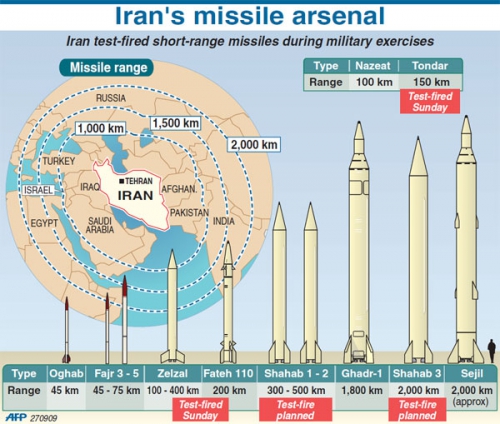
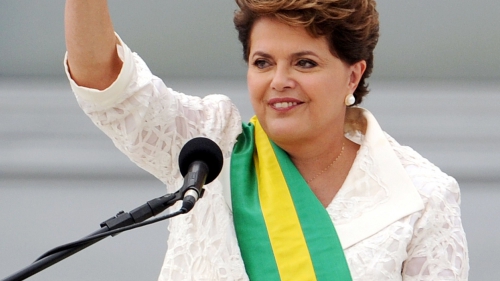
![prewp18rutop[1].jpg](http://euro-synergies.hautetfort.com/media/00/02/3863888964.jpg)
